|
Coliseum EL JEM
World Heritage Site
UNESCO since 1979
|
|
EL JEM
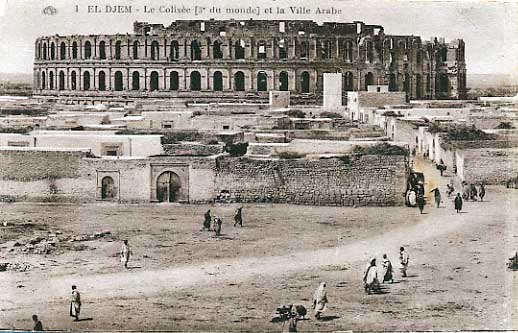
Small town, located halfway between
Sousse and
Sfax
|
El Jem Amphitheater
It is the remnant of an important Roman city of 30,000
inhabitants, built in the 2nd century AD, named Thysdrus. It was a road junction.
Benefiting from this strategic position, it became prosperous and will remain so even after the repression
that followed the takeover by Gordian, ephemeral emperor who committed suicide after a few weeks of reign.
Located in a plain in central Tunisia, the amphitheater, elliptical, was built entirely of stone. It is neither dug nor leaning against a hill.
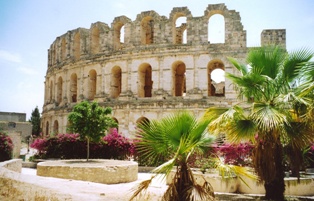
|
The Coliseum of El Jem is 148 m long, 122 wide and 36 m high and has been used for
2 centuries. Its capacity of 35,000 spectators and its imposing size unquestionably ranks it among the largest amphitheatres
in the world. This building dating from the third century, illustrates the greatness of the Roman Empire.
It was probably used for gladiatorial shows, chariot races and other circus games.
|
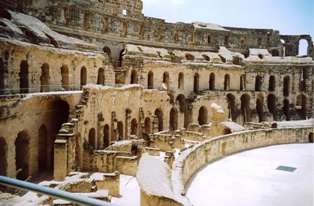
Inside this vestige |
Archaeological excavations have been able to locate the abandonment of the amphitheater in the second half of the fifth century. It was transformed by the Byzantines into a fortress and a place of refuge.
Its excellent restoration, financed by the Tunisian government and a private foundation now allows us to admire it and use it occasionally for cultural shows.
|
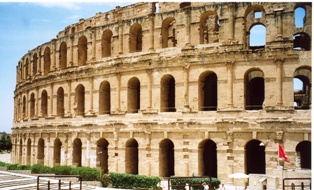
Coliseum |
The amphitheater is now the setting for cultural events. It houses the international festival of symphonic music of El-Jem each summer and other cultural events the rest of the year.
|
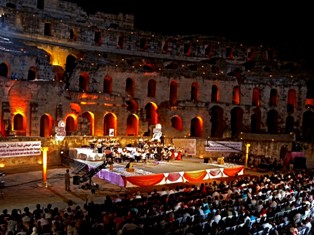
International Festival of Symphonic Music of El Jem |
The museum includes beautiful mosaics from all over the region. In the field of excavations that extends behind the museum, the remains of some Roman villas from which the most beautiful mosaics of the museum have been extracted have been discovered. The house of Paon and Sollertiana Domus are among the most representative of the luxury of the Roman villas of the time.
|
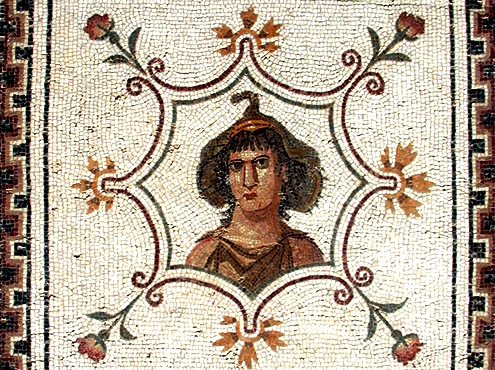
Mosaic representing the goddess Africa |
|
|
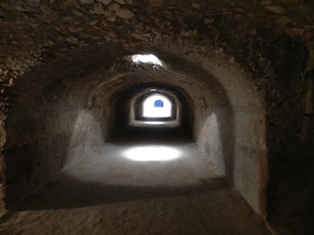
Basements
|
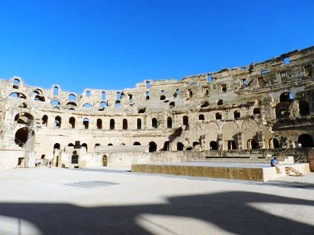
Main entrance of the Amphitheater |
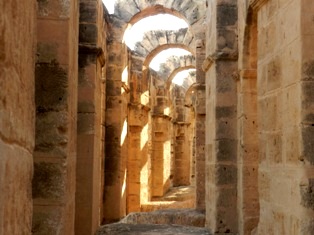
Galleries (vomitorium) allow access to the stands |
|
ARCHEOLOGY IN TUNISIA
Other sites to visit
|
|
|
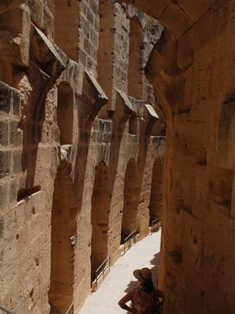 |